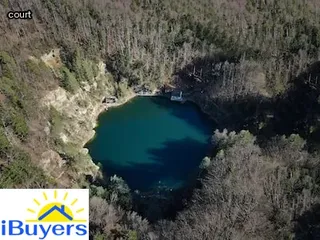The probate process in Oklahoma requires a person to follow certain steps when navigating the legal system. It is important to understand the various components of the probate process and how they are implemented.
In Oklahoma, probate is the court-supervised process of transferring a deceased person’s assets to their heirs or beneficiaries. During this process, an executor is appointed by the court to oversee the estate administration, including collecting assets, paying debts and taxes, and distributing assets.
The executor must also ensure that all creditors are paid and any remaining assets are distributed according to the deceased’s will. Real estate held by a decedent in Oklahoma must go through probate before it can be transferred to another party.
This means that if you own real estate in Oklahoma, you may need to go through probate before being able to sell it or transfer it to another party. Understanding how the probate process works in Oklahoma is essential for anyone who owns real estate or has other assets located in this state.

Navigating the probate and real estate process in Oklahoma can be daunting without knowledge of the different types of probate that exist. Testamentary probate is a common type of probate which occurs when a decedent has left behind a valid will; with this type, an executor is appointed to manage the estate and ensure that all assets are distributed according to the deceased's wishes.
Intestate probate, alternatively, occurs when there is no valid will; in this case, an administrator is appointed by the court to manage the estate. Ancillary probates are similar to testamentary and intestate probates but occur when someone dies owning real property in multiple states.
Lastly, small estates may not require formal proceedings if certain conditions are met such as having no debt or creditors involved. It’s important for anyone navigating the probate and real estate process in Oklahoma to understand these nuances so they can make informed decisions about how best to proceed with their situation.
Navigating the probate and real estate process in Oklahoma can be a complicated task. Before beginning the process, it is important to understand the length of time required for probating a will in the state.
In most cases, Oklahoma law requires that an executor begin the probate process within three years of a decedent's death. This time frame may vary depending on whether or not certain assets are included in the will or if there are any pending lawsuits against the estate.
Additionally, if there are multiple beneficiaries listed in the will, this can also lengthen the amount of time needed to complete probate. The court may require additional documentation or hearings in order to determine how long probate should take depending on these factors and more.
It is wise to consult with an experienced attorney who specializes in Oklahoma probate law before beginning this journey as they can help you create a timeline that best suits your situation and ensure that all necessary steps are taken during this process.

Navigating the probate process and real estate laws in Oklahoma can be complex, especially when it comes to mobile homes. It is important to understand how the probate process works with regard to mobile homes, as they are typically considered personal property by the state.
Generally, if a decedent owned a mobile home that was affixed to land owned by someone else, then the home is subject to probate. If the decedent owned both the mobile home and the land it was on, then probate may or may not be necessary depending on other factors.
It is important for executors of estates in Oklahoma to understand their rights and obligations related to mobile homes that are a part of an estate. They must know what documents need to be filed with the court and how taxes should be paid if applicable.
Additionally, executors need to determine whether any liens or mortgages exist against a home before it can be distributed from an estate. Understanding these steps and having a legal professional guide you through them can help ensure that all aspects of probate related to mobile homes in Oklahoma are handled correctly and efficiently.
In Oklahoma, determining if a surviving spouse requires probate is an important part of navigating the probate and real estate process. Generally speaking, if the deceased individual left behind assets that are solely owned by them, probate is necessary to transfer the asset to their named heirs.
If there were community property or joint tenancy assets owned by the deceased in Oklahoma, these may transfer directly to the surviving spouse without going through probate. Even when there are no jointly held assets, Oklahoma allows a surviving spouse to inherit up to $20,000 of an estate without probate.
This amount can be increased depending on any children of the deceased or other dependents they may have had. Furthermore, a surviving spouse can also waive their right to certain items of property in lieu of going through probate.
Lastly, some estates may qualify for an affidavit procedure which allows for quicker distribution of assets than traditional probate proceedings. In order to determine whether or not a surviving spouse requires probate in Oklahoma it is best to consult with an experienced real estate attorney who can review all applicable laws and advise accordingly.

When it comes to navigating the probate and real estate process in Oklahoma, investigating whether joint accounts need to go through probate is an important task. Generally, joint accounts are not subject to probate in Oklahoma; however, there are exceptions.
Joint tenants with right of survivorship (JTWROS) are treated differently than other types of joint accounts, so it's important to understand the nuances of each. Most bank accounts do not need to go through probate if they were owned by two people as JTWROS.
This type of account allows a surviving owner to take ownership of the account when another owner passes away without going through the probate process; however, if the deceased person named a beneficiary on their account or held the account as tenants in common, then the funds will likely go through probate court. In addition to looking into joint accounts, property that is jointly owned must also be investigated for potential probate issues.
If one owner dies and leaves their share of real estate jointly owned with someone else behind, then that share of property may have to go through probate court before it can be transferred over to the surviving tenant. It's also important to consider any debts associated with jointly owned real estate as this could impact how much money goes through the probate process and who is responsible for handling those debts.
Navigating the probate and real estate process in Oklahoma can be complicated, but there are some strategies to help you avoid probate. One of the most effective ways to safeguard your estate is through establishing a revocable living trust.
This type of trust allows you to transfer assets into the trust during your lifetime and specify how they should be distributed upon death. Additionally, if you hold joint ownership of assets with right of survivorship, such as a bank account or house, then those assets will automatically transfer to the surviving owners without going through probate.
Furthermore, if you have named beneficiaries on accounts such as life insurance policies or retirement plans, then those funds will pass directly to your beneficiaries without becoming part of the probate process. Finally, for small estates under $15,000, Oklahoma offers an affidavit process which allows heirs to claim property without going through probate court.
By understanding these strategies and taking advantage of them when possible, you can help protect your estate from going through the lengthy and costly process of probate in Oklahoma.

The cost for probating a will in Oklahoma can vary greatly depending on the type of assets involved and the complexity of the estate. Generally, a basic probate without any complications will cost between $2,000 and $5,000 with an estimate of 2-4% of the total estate value.
If there is real estate involved, additional costs may be incurred due to filing fees and court costs as well as attorney’s fees. The more complex the estate is, such as when there are multiple beneficiaries or many different kinds of assets, then it could take more time to settle the estate and result in higher attorney’s fees.
In addition, if any disputes arise then litigation costs will need to be factored into the equation. It is therefore important for executors and their attorneys to carefully assess all potential costs associated with probating a will before undertaking this process.
Navigating the probate and real estate process in Oklahoma can be a complex matter, so it is important to understand when probate is required. Generally, probate is required if an individual dies with assets that are held solely in their name, such as bank accounts or real estate.
If the deceased has a will, they may have designated who should inherit these assets; otherwise, the state will decide how any assets should be distributed. It is essential to know if a probate proceeding is necessary prior to distributing any of the deceased’s property, as doing so without one could result in legal complications or financial losses for the beneficiaries.
Establishing whether or not probate is needed involves carefully evaluating all of the deceased's assets and gathering relevant documents. An experienced attorney can provide helpful guidance on how to navigate this process.

When navigating the probate and real estate process in Oklahoma, consulting a legal professional is of the utmost importance. An experienced lawyer can provide invaluable guidance on complex matters such as filling out forms properly, working with executors, filing documents in court, and following deadlines.
It's also important to have a legal professional’s advice when distributing assets or selling property that is subject to probate. Working with an attorney who knows the state's laws and regulations can help ensure that all parties involved are fairly treated and that the transfer of ownership is legally valid.
Additionally, having proper legal representation can reduce stress throughout the entire process by organizing paperwork, preparing for court appearances, and answering any questions along the way. Consulting a knowledgeable legal professional is essential for those going through the probate and real estate process in Oklahoma.
Navigating the probate and real estate process in Oklahoma requires a thorough understanding of how they are connected. In order to successfully navigate this process, it is important to understand the different types of real estate that are involved, such as residential, commercial, and industrial properties.
Additionally, it is important to be aware of the different ways in which these types of real estate can be transferred through probate law. This includes wills and trusts, intestate succession laws, homestead laws, and deed transfers.
Understanding these transfer methods will help individuals make informed decisions about their Oklahoma real estate transactions when navigating the probate process in the state. Furthermore, it is beneficial for individuals to become familiar with Oklahoma's tax laws related to real estate transactions as well as any applicable liens or mortgages that may need to be addressed during the probate process.
By analyzing how real estate and the probate process in Oklahoma intersect, individuals can gain a better understanding of what is necessary for a successful navigation of both processes.

When it comes to navigating the probate and real estate process in Oklahoma, each city has different rules that must be taken into consideration. Norman, Oklahoma City (OKC), Edmond and Stillwater all have different requirements for how a probate proceeding is handled, which can make it difficult for those unfamiliar with the process.
In Norman, for example, a personal representative must be appointed to manage the estate, while in OKC, if no will exists then an administrator is appointed by the court. Edmond requires that a notice of death be filed with the county clerk before any proceedings can begin, and Stillwater requires that all beneficiaries receive notice of any probate action being taken.
When considering these cities' individual rules on probate and real estate, it is important to research the specific details in order to ensure that all requirements are met.
Navigating the probate and real estate process in Oklahoma can be complex and confusing. To gain a better understanding of how it works, common questions such as who is responsible for filing the paperwork, what happens if there is no will, and how long does it take to go through the probate process need to be answered.
In Oklahoma, the executor of an estate is responsible for filing the necessary paperwork with the court system. If there is no will present when someone passes away, his or her assets will be distributed according to state law.
The length of time necessary to complete the probate process depends on whether or not any objections are raised by creditors or heirs; however, generally speaking it often takes between three months and one year. Individuals should consider consulting a lawyer prior to beginning this process in order to ensure that all documents are filed correctly and in accordance with state law.

When it comes to navigating the probate and real estate process in Oklahoma, investigating if it is necessary to go through probate when there is a will involved is an important step. Generally, if the deceased owned real estate or had more than a certain amount of personal property in their name alone, then a probate court must be opened and supervised by an executor of the will.
The executor of the will then has the responsibility to ensure that all debts are paid off from the estate and any remaining assets are distributed according to the terms stated in the will. If the deceased died without a valid, legal will then those assets would be divided according to state law.
Additionally, if there is no surviving spouse, then any real estate owned must be transferred through probate unless another process such as a beneficiary deed was used prior to death. Knowing whether it is necessary or not to do probate in Oklahoma with a will requires understanding who owns what and how they own it so that all debts can be settled and all assets can be properly inherited.
When a person dies without having created a will in Oklahoma, their estate is considered to be intestate. In this situation, the state of Oklahoma uses laws known as “intestate succession” to determine how the deceased's assets are distributed amongst their surviving family members.
This process can be complex and time consuming. It is important to understand the consequences of not doing a will in Oklahoma before the death of a loved one so that you can be prepared for what may come next.
One potential consequence of not having a will is that certain relatives may be excluded from receiving any inheritance or assets. Moreover, if there are no close relatives, then all of the assets could potentially go to the state.
Additionally, if there are minor children involved, then a court-appointed guardian would need to be appointed to manage any finances until they come of age. All these issues can complicate and delay the probate process and real estate processes in Oklahoma, so it is beneficial to do your research ahead of time to understand what could happen in such situations.

The probate and real estate process in Oklahoma can be complicated, which is why it's important to understand the types of procedures involved. Generally, the process starts with a court filing by an executor or administrator of the estate.
This document will include information such as a list of all estate assets, payment of debts and taxes, distribution of assets to beneficiaries, and other related matters. Next, an inventory must be submitted that lists all estate assets and their estimated value.
After that, the executor or administrator is responsible for collecting and distributing the assets in accordance with state law. The court may also appoint appraisers to provide an accurate valuation of certain items that are not easily valued or liquidated.
Additionally, if there are disputes over the distribution of assets or questions about how to administer them, then legal counsel may need to be consulted for advice and assistance. Throughout this process it is important to keep detailed records and remain in contact with the court so that deadlines are met.
The time frame allotted to close out a will in the state of Oklahoma is dependent on a number of factors. The probate process typically begins with the filing of the will and other necessary documents with the court.
Once these documents are filed, the court will appoint an executor or personal representative to oversee the administration of the estate. From this point, it is important for individuals involved in the process to understand that each county may have its own probate laws and regulations which may impact the timeline.
In addition, if there are disputes or disagreements between parties, this can delay or extend the time frame as well. Furthermore, any real estate transaction associated with an estate must also be taken into account when determining how long it will take to close out a will in Oklahoma.
It is important for individuals dealing with these matters to seek legal advice throughout every step of the process in order to ensure that all deadlines are met and that all parties involved are informed of their rights and obligations under law.

Navigating the probate and real estate process in Oklahoma can be complex. It is important to understand how long it will take to complete the procedure for probate in this state, as this will help you plan accordingly.
Research is key when it comes to answering this question, as timelines vary from case to case. One of the main factors that will affect the time it takes for probate to be completed is the complexity of an individual's estate.
If an estate is large and/or more complicated, such as one with numerous assets or debts, there may be a longer wait before everything has been settled. Other factors that can influence how long it takes for probate proceedings to finish include whether any disputes arise, if there are any delays in filing paperwork, or if any court appearances are necessary.
Additionally, some counties in Oklahoma have specific rules governing their probate processes which could further delay the completion of a case. To get a better understanding of your situation, it is best to contact an experienced attorney who can provide you with more accurate information regarding timeline expectations for your particular probate matter.
Yes, real estate must go through probate in Oklahoma. Probate is a legal process that transfers ownership rights of a deceased person's estate to their named heirs.
In order for the transfer of title and possession to take place, the process of probating the estate must be completed. This involves filing certain documents with the county court, including an inventory of all assets and debts, as well as a petition for appointment of a personal representative to manage the estate.
The court then appoints a personal representative who is responsible for paying any outstanding debts and taxes owed by the deceased individual, as well as distributing any remaining assets to the rightful beneficiaries. If there are no disputes over how the property should be divided or distributed, then the probate process may be relatively quick and simple.
However, if there are complications or disagreements between heirs or creditors, then it may require additional time and resources to work through these issues before finalizing the transfer of title and possession. Thus, it is important to understand all aspects of navigating through the probate and real estate process in Oklahoma prior to beginning this type of transaction.

Yes, it is possible to sell a house in probate in Oklahoma. The process of selling a house during probate involves navigating the probate and real estate laws of Oklahoma.
As such, it is essential to understand the different steps involved and how to go about them. First, an executor must be appointed by the court as part of the probate process.
This executor is responsible for managing and distributing assets according to the terms of the will or intestacy laws in Oklahoma. Once an executor has been appointed, they can begin the process of selling a house in probate.
This includes taking steps such as gathering information on taxes and other liens attached to the property, obtaining necessary permits from the county assessor's office, and listing the property in order to find potential buyers. It is also important to be aware of all applicable state regulations regarding sale of real estate after death so that you are compliant with these rules when selling a house in probate in Oklahoma.
By familiarizing yourself with both the legalities surrounding probate and real estate law as well as taking actions such as finding buyers for your home, you can successfully navigate this process for yourself or for a loved one who has passed away.
Probating an estate in Oklahoma can be a complex process, but there are steps you can take to make it easier. The first step is to determine which type of probate you will need to file: formal testacy or small estate affidavit. Formal testacy is more complicated and requires more paperwork, while the small estate affidavit is typically quicker and simpler.
After determining the type of probate you need to file, you should contact the court clerk's office in the county where the deceased last lived. They will provide instructions on how to proceed with filing your paperwork and initiating the probate process. You may also be required to have an attorney present during this process.
Furthermore, Oklahoma law dictates that all heirs must receive notice of the initiation of probate proceedings and any associated court hearings. Additionally, you will need to collect information about assets owned by the deceased as well as any debts owed by them. This information will be used for tax purposes and should include both real and personal property such as bank accounts, real estate titles, stocks or bonds, vehicles, life insurance policies, etc.
Once all information has been gathered and presented to the court for approval, a judge will then enter a decree for distributing assets according to state law if no valid will exists or in accordance with a valid Last Will and Testament if one does exist. To ensure that all parties involved understand their rights throughout this process and that everything is done correctly according to Oklahoma law, it is highly recommended that you consult with a qualified attorney who specializes in Probate Law prior to initiating proceedings.
The probate and real estate process in Oklahoma can be intimidating and expensive, but understanding the associated costs can help you navigate it more easily. Generally, the cost of probating an estate in Oklahoma depends on the value of the estate.
In most cases, if the total value of an estate is less than $75,000, probate fees are waived. However, if an estate's assets exceed this threshold, a filing fee must be paid to the court when opening a formal probate proceeding.
The cost of probating an estate also includes attorney fees as well as costs related to court filings and any necessary appraisals or inventory assessments. Costs may also include preparation of documents such as notices to creditors and heirs or executors’ commissions for their services.
Additionally, there may be additional charges for tasks such as selling assets or settling claims against the estate. While it is impossible to estimate exact costs without seeing all of the details in a particular case, understanding these typical expenses can help prepare you for navigating the probate and real estate process in Oklahoma.